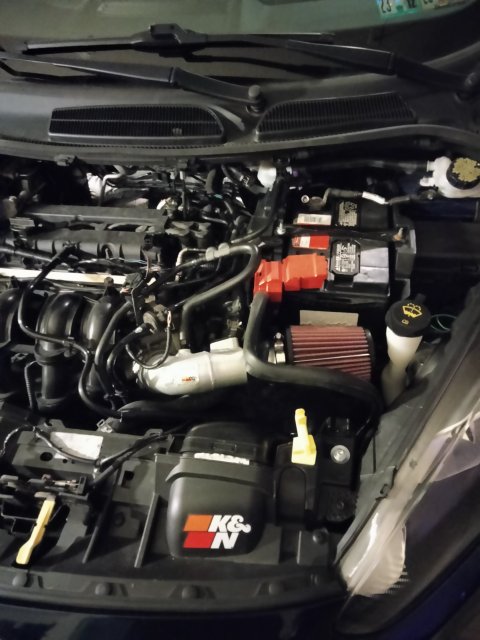The Role of a Quality Ford Fiesta Engine in Vehicle Performance
The Role of a Quality Ford Fiesta Engine in Vehicle Performance
Blog Article
Unlocking the Power of Engines: A Comprehensive Overview to Efficiency and Efficiency
Recognizing the intricate mechanics of engines is critical for both efficiency enthusiasts and everyday drivers. The responses might redefine our technique to engine efficiency and efficiency in ways that are both enlightening and important.
Comprehending Engine Basics
What makes up the essential auto mechanics of an engine? At its core, an engine is a device developed to transform gas right into mechanical power via a series of regulated surges or combustion procedures.
The crankshaft after that transforms this straight motion into rotational energy, which ultimately powers the vehicle. The camshaft regulates the opening and closing of the shutoffs, managing the intake of air and fuel and the expulsion of exhaust gases. Additionally, the engine depends on a meticulously calibrated fuel-air mixture, ignition system, and cooling down system to guarantee optimal efficiency and performance.
Understanding engine essentials additionally entails acknowledging the significance of engine cycles, such as the four-stroke cycle, which includes consumption, compression, exhaust, and power strokes. Each stage is vital in guaranteeing the engine operates smoothly and efficiently. Mastery of these fundamental mechanics lays the groundwork for exploring more complex engine characteristics and performance metrics, important for optimizing both power output and performance.
Secret Performance Metrics
Key performance metrics are necessary for examining an engine's performance and power output, giving valuable insights for both producers and customers. These metrics function as criteria for engine performance, permitting notified choices in production, style, and purchasing.
Among the main metrics is horse power, which measures the engine's ability to perform job over time. Torque, gauged in pound-feet, is another critical statistics that indicates the engine's rotational force, directly affecting acceleration and hauling ability. Gas effectiveness, usually determined in miles per gallon (MPG) or liters per 100 kilometers (L/100km), evaluates just how successfully the engine converts fuel into movement, affecting ecological factors to consider and functional costs.
Additionally, thermal efficiency actions just how well an engine converts fuel power into valuable job, disclosing understandings right into energy losses primarily with warmth. Emission levels, including carbon dioxide and NOx, are additionally important, reflecting the engine's ecological impact and compliance with governing standards.

Tuning Strategies for Efficiency
Tuning methods play a substantial function in enhancing engine performance by maximizing performance metrics determined in earlier conversations (ford fiesta engine). Numerous techniques exist to fine-tune an engine, each adding to boosted gas economy and decreased exhausts
One effective technique is changing see it here the air-fuel proportion, ensuring the engine operates within the optimal burning program. A leaner blend can improve gas efficiency, but it needs to be balanced to stop misfires or engine knock. In addition, reprogramming the engine monitoring system can alter criteria such as ignition timing, which additionally enhances efficiency while maintaining power outcome.
Another essential strategy includes changing the intake and exhaust systems. Updating to high-performance air filters and exhaust headers can minimize back pressure, promoting far better air movement. This permits the engine to breathe even more easily, leading to boosted combustion effectiveness.
Moreover, the application of advanced adjusting devices, like dyno testing, gives precise information that allows targeted modifications. Frequently keeping an eye on these efficiency metrics ensures that tuning efforts generate the desired performance outcomes. Collectively, these methods not just boost engine efficiency yet likewise add to long-lasting sustainability in engine operations.
Upkeep for Ideal Performance
Routine engine upkeep is crucial for achieving ideal efficiency and durability. A well-kept engine not only operates efficiently yet likewise minimizes the danger of costly fixings and malfunctions. Trick parts needing normal attention include oil, filters, belts, and ignition system.
Altering the engine oil at recommended intervals is essential, as oil lubricates moving parts and avoids overheating. Similarly, changing oil and air filters makes sure that pollutants do not hinder engine feature. Ignoring these elements can result in decreased effectiveness and potential engine damage.
Additionally, checking and replacing worn belts and pipes is essential to prevent unexpected failures. Timing belts, in particular, should be replaced according to the manufacturer's routine to stay clear of devastating engine damages.
Spark connects ought to also site web be examined and replaced as required, since they play a crucial role in ignition and fuel effectiveness.
Future Trends in Engine Modern Technology
Accepting advancements in modern technology, the future of engine style is poised to reinvent efficiency and efficiency across numerous applications. Crossbreed and completely electrical powertrains are ending up being increasingly traditional, using decreased exhausts and boosted gas efficiency.
Moreover, innovations in products scientific research are resulting in lighter, more powerful elements that boost engine performance while minimizing power intake. Advanced production methods, such as 3D printing, permit the production of intricate geometries that boost air flow and thermal monitoring, hence optimizing combustion procedures.
In addition, the integration of man-made intelligence and artificial intelligence is readied to change engine diagnostics and efficiency tuning. These modern technologies i was reading this can analyze large quantities of data in actual time, enabling predictive upkeep and tailored efficiency enhancements.
Final Thought
In conclusion, unlocking the power of engines needs a detailed understanding of their auto mechanics and performance metrics. Executing effective adjusting methods and adhering to routine upkeep techniques significantly improve engine abilities.
In addition, the engine relies on a thoroughly adjusted fuel-air blend, ignition system, and cooling down system to make certain optimum performance and performance.
Understanding engine basics likewise involves identifying the value of engine cycles, such as the four-stroke cycle, which consists of consumption, power, compression, and exhaust strokes. Mastery of these fundamental auto mechanics lays the groundwork for exploring extra intricate engine dynamics and performance metrics, crucial for optimizing both power outcome and efficiency.

Accepting advancements in modern technology, the future of engine style is positioned to revolutionize performance and efficiency throughout various applications.
Report this page